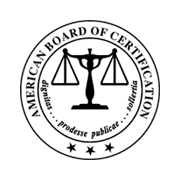
506 N. Armenia Ave. Tampa FL 33609 | 813-870-3100
Chapter 11 Bankruptcy:
While Chapter 11 Bankruptcy is usually a corporate reorganization allowing corporations to stay in business if they can adjust their finances to create a positive cash flow, it also can be filed for individuals when chapter 7 or chapter 13 do not work well.
Congress recently passed a new law called Subchapter V chapter 11 which streamlines procedures and should result in a less expensive and expedited process for corporations that have less than $7.5 million (which limit will be reduced as of 27 March 2021 to business with debts less than $2,725,625).
Subchapter V chapter 11 details
This is a complicated area of law, and we offer a free consultation to determine whether and which type of chapter 11 is the best fit for an individual client.
Mr. Barnett has experience in both debtor and creditor representation in regular chapter 11 cases.
Chapter 11 has traditionally been reserved for corporate reorganizations. This can be used by corporations to reduce payments on unsecured debts, to downsize their operations, and to reorganize into a profitable operation that can continue to do business. Depending on the size of the business, there are different types of chapter 11 reorganizations, with different requirements and advantages for each.
The longest standing type of case is the normal chapter 11, where there is no limit to the total debt owed. In order to get the general chapter 11 case approved either all creditors must be paid in full, or one class of impaired creditor must vote in favor of the plan of reorganization. This type of case does require a lengthy disclosure statement to be sent to all creditors, and requires fees to the US Trustee office each month the case is pending based on the monthly expenses of the business. All chapter 11s require monthly reports to the trustee’s office of the income and expenses of the business.
If the debtor has less than $2,725,625 in debts (temporarily increased to $7.5 million total debts until 27 March 2021) and it’s business is not owning a single piece of real estate, and at least 50% of the debt arise from the business activities of the debtor it can qualify as a small business debtor. This provides for a somewhat expedited process for reorganization, but still requires one class of impaired creditors to vote in favor of the plan of reorganization. This type of case should be less expensive than the normal chapter 11 described above.
Debtors that qualify as small business debtors per above, have a choice to file under Subchapter V bankruptcy. This is a substantially expedited process, generally less expensive, that does not require an impaired class of creditors to vote in favor of the plan of reorganization, and which does not require a formal disclosure statement. Instead of paying the US Trustee based on the monthly expenses, the business pays in individual trustee appointed for that case based on the time spent by the trustee, who is charged with assisting the debtor to reorganize.
Subchapter V chapter 11 - details
The US Trustee remains active in subchapter 5 cases and can object if the requirements are not met. Some of these requirements are:
Debts: Eligibility has been expanded through 27 March 2022 to debtors with up to $7.5 million in debt.
Commercial or Business activity: To be eligible to file under this chapter you must be engaged in commercial or business activities, and at least half of the debt must arise from such commercial or business activity.
Disposable income: The bankruptcy laws requires that all of your projected disposable income for 3-5 years be paid toward creditors in the plan. Projected disposable income is defined as income that is not reasonably necessary to be expended for maintenance or support of the debtor or debtor's dependents; for alimony or child support, or for continuation, preservation, or operation of your business.
Modification of a plan, based on a reduction of income, is relatively simple before confirmation (probably occurring 6-9 months after filing). If the case is approved without opposition you can request that the court deem the case substantially consummated, thereby ending the fee to the trustee; and requiring you to write new promissory notes for the remaining payments due. However, once the plan is substantially consummated, it is probably not possible to amend the plan. If the plan is confirmed without consent (a cramdown plan) it can be amended during the 3-5 year plan period.
Value of assets: You have to pay to creditors is based on the value of your assets, specifically how much creditors would receive if you filed chapter 7, given the allowed exemptions in your case.
Some Requirements of Subchapter V of chapter 11 are:
1) You will need to open new 'Debtor in Possession' bank accounts as soon as the case is filed.
2) We will need a court order to allow the corporation to keep paying you or any other officers or relatives of you.
3) If you owe money to vendors you are still using, we would need to get a 'critcal vendor' order allowing the corporation to keep paying them in full.
4) You will need to file monthly operating reports showing income and expenses.
5) You will need to provide the trustee proof that you have all required insurance.
6) We will need a projected budget shortly after filing for the 6 months after we file the case.
7) We will need to provide a detailed listing of accounts receivable and an accounts receivable aging report.
8) We will need to provide a list of all checks written and other disbursements on all bank accounts for the 90 days prior to filing.
9) We will need a list of physical inventory, if any.
10) We will need copies of current business licenses and performance bonds, if required.
11) We will need details on any pension, welfare/health plans.
12) You will be required to file all tax returns when due and make all payments when due after the case is filed.
13) The plan must provide that the debtor pay in all projected disposable income over a 3 to 5 year period.
14) A mini-version of the disclosure statement is required, showing a brief history of the business operations of the debtor, a liquidation analysis, and a projected budget.
15) There will be a fee that has to be paid to the trustee in the subchapter 5 case.
16) A discharge can be entered upon confirmation of the plan if there are no objections to the plan.
The primary advantage of a subchapter V chapter 11 case is we are not required to get a favorable vote from creditors. The court sets a status conference 60 days after filing, and 14 days before that the debtor must report as to efforts made to get a consensual plan. The repayment plan must be filed within 90 days of the filing of the bankruptcy. You keep control of the business unless there is fraud or gross mismanagement. A trustee is appointment whose primary duty is to facilitate a consensual plan for the debtor and creditors. If there is no objection to the plan the plan can be approved even without a specific favorable vote of creditors.
You should ask any attorney about their qualifications to represent you. I have been board certified in consumer bankruptcy law over 25 years. I opened my own office in 1992 after having been a partner at another bankruptcy law firm, and have been serving Hillsborough and Pasco counties with appointments in Tampa and the Dade City area for over 20 years now. I limit my practice to bankruptcy and bankruptcy appeals. I have given a seminar to local counsel on communicating with clients, and always try to return any calls or messages within 24 hours. My analysis of the new bankruptcy law has been noted and linked to from the main national bankruptcy website: www.abiworld.org.
Michael Barnett, Esq.
Michael Barnett, PA
506 N Armenia Ave.
Tampa, FL 33609-1703
https://hillsboroughbankruptcy.com/
813-879-3100
Over 25 Years in Florida

Michael Barnett has provided his services in and around Tampa, Florida covering Hillsborough, Pasco and Polk County for over 20 years.
Board Certified

Mr. Barnett is board certified by the American Board of Certification in consumer bankruptcy law, and has been board certified since January 1993.
BBB Accredited

The BBB has determined that this business meets accreditation standards.